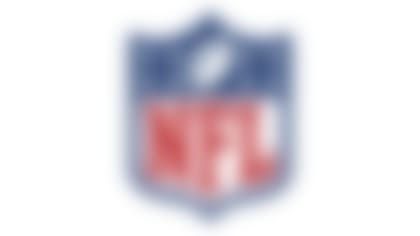The National Football League will provide $30 million in funding for medical research to the Foundation for the National Institutes of Health (FNIH), NFL Commissioner ROGER GOODELL announced today.
The unrestricted gift is the NFL's single-largest donation to any organization in the league's 92-year history and will be overseen by The National Institutes of Health (NIH).
NIH, a component of the U.S. Department of Health and Human Services and one of the world's foremost medical research centers, will administer the NFL funding and research designed to benefit athletes and the general population, including members of the military.
With this contribution, the NFL becomes the founding donor to a new Sports and Health Research Program, which will be conducted in collaboration with institutes and centers at the NIH. The FNIH hopes to welcome other donors, including additional sports organizations, to the collaboration.
Specific plans for the research will remain to be developed, but potential areas under discussion include accelerating the pace of discovery to support the most innovative and promising science of the brain, including: chronic traumatic encephalopathy (CTE); concussion management and treatment; and the understanding of the potential relationship between traumatic brain injury and late-life neurodegenerative disorders, especially Alzheimer's disease.
In addition to brain research, funding also will be dedicated to other important health areas such as: sudden cardiac death in young athletes; heat and hydration-related illness; chronic degenerative joint disease as a result of athletic injuries; the transition from acute to chronic pain; and the detection and health effects of performance enhancing substances, including human growth hormone.
"We hope this grant will help accelerate the medical community's pursuit of pioneering research to enhance the health of athletes past, present and future," said Goodell. "This research will extend beyond the NFL playing field and benefit athletes at all levels and others, including members of our military."
"We are grateful for the NFL's generosity" says Dr. Stephanie James, FNIH acting executive director and CEO. "The research to be funded by this donation will accelerate scientific discovery that will benefit athletes and the general public alike."
Dissemination of funding from this grant will be governed by federal law and policy applicable to NIH-funded research. In accordance with NIH policy, NIH funding recipients will be urged to disseminate the results of research to optimize the value of the science to the research community and the public. The NFL will have no early or special access to scientific study data.
About the Foundation for the NIH
Established by the United States Congress to support the mission of the NIH -- improving health through scientific discovery in the search for cure -- the Foundation for the NIH is a leader in identifying and addressing complex scientific and health issues. The Foundation is a non-profit, 501(c)(3) charitable organization that raises private-sector funds for a broad portfolio of unique programs that complement and enhance the NIH priorities and activities. For additional information about the Foundation for the NIH, visit www.fnih.org.
About the NIH
NIH, the nation's medical research agency, includes 27 Institutes and Centers and is a component of the U.S. Department of Health and Human Services. NIH is the primary federal agency conducting and supporting basic, clinical, and translational medical research, and is investigating the causes, treatments, and cures for both common and rare diseases. For more information about NIH and its programs, visit www.nih.gov.
About the NFL's health and safety programs
Throughout its history, the NFL has made the health and safety of its players a priority and its reach extends to football and sports at all levels. At the youth level, partnerships with USA Football and the Centers for Disease Control and Prevention help parents, coaches, clinicians and athletes understand the signs and symptoms of possible head injuries. The league also collaborates with state legislatures to push for passage of youth concussion laws. Through funding for medical studies, collaboration with the military on their research and the work of the NFL's medical committees, the NFL is committed to supporting and advancing science that will have an impact far beyond football. With a continued emphasis on improved equipment, rules changes, and in-game policies, the NFL fosters a culture that promotes health and safety at every level of the game. For more information, please visit www.nflevolution.com.











